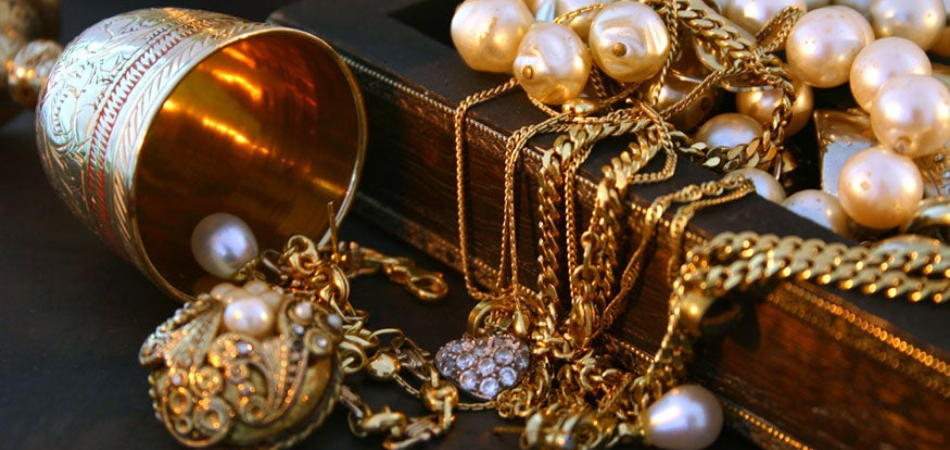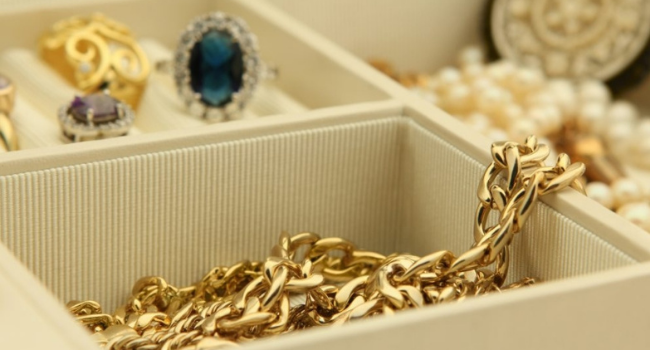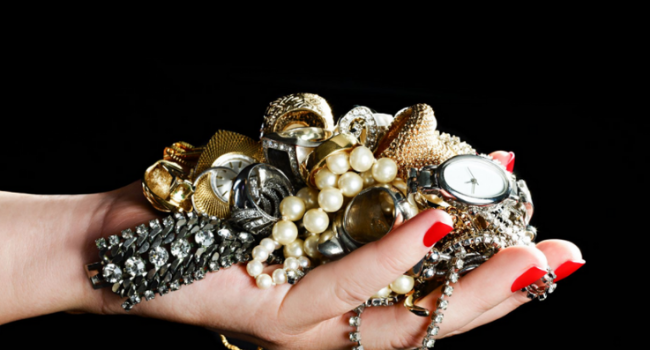Yes, your fine jewelry may last you a lifetime when taken good care of, but your fashion or costume jewelry may rust because of the alloy metals in them.
Jewelry can be fine or fashionable. The fine jewelry is made of pure precious and noble metals such as gold, platinum and diamond. The fashion or costume jewelry are made of alloys of metals such as copper, steel and brass.
These two metals which are used in the making of jewelry have their different implications on the durability of their products, especially their ability to tarnish, corrode and rust.
In this article, I will answer you all you need to know as to whether jewelry can rust or not, and what you can do to take care of your jewelry and prevent them from rust.
Contents
Why Your Jewelry May Rust?
Jewelry are fashion and fashionable costumes worn to adorn the body. They include your necklaces, anklets, waist beads, wrist watches and many more. These jewelry are made of different materials, and are sold or valued according to the material metal with which they are made.

When you go for your jewelry, you probably wish that they should last for as long as a lifetime. Not only that, you also wish that they keep their shine and glitters all through time.
One of the bad realities however is that most jewelries rust or at least tarnish and corrode with time and as a result, may not last for as long as we wish. We shall now review some reasons why your jewelry may rust
Is It Ferrous or Non-Ferrous Metal?
One of the major determinants of whether your jewelry will rust or not is the type of metal it is made of.
There are two types of metal that you need to know about which your jewelry is made of.
Ferrous metals are metals that have iron in them. No matter how small the presence of iron is in a metal, it turns that metal or jewelry into a ferrous metal which is magnetic in nature. Examples of ferrous metals include cast iron, wrought iron, alloy steel, and carbon steel.

The non-ferrous metals do not contain iron of any kind and are naturally light weight and more malleable. Examples of non-ferrous metals include copper, aluminum, nickel, zinc, lead, and tin, gold, silver, platinum, and palladium.
Now, what is there about ferrous and non-ferrous metals? With the exception of wrought metals which maintain a high percentage of purity, ferrous metals are susceptible to rust, tarnish and corrosion. This is because they contain iron. The non-ferrous metals however do not contain iron and do not rust.
It follows therefore that, since both ferrous and non-ferrous metals are used in making jewelry, one of the things that will account for whether or not your jewelry will rust is the kind of metal with which it is made.
Environmental Factors
The other major reason why your jewelry will rust, especially the ones made of ferrous metals, is the kind of environment to which they are exposed or to which you expose them. A moisture ridden environment, or an environment filled with sulfur springs will lead to your jewelry tarnishing, corroding and rusting.
Moisture is of course a necessary condition for corrosion and rust. So, the more moisturized the area or environment you live in or keep your jewelry, the more its tendency to react with oxygen, iron and water to produce rust.
Body PH and Care
The care given to your jewelry ultimately determines how long it will last before it begins to rust. For non-ferrous or fine jewelries, if not cared for and stored in a cool dry place and polished once in a while, the top layers will begin to form greenish parts gradually, which is tarnish.

For ferrous metals or fashion jewelry, even the body PH can facilitate its tendency to tarnish and rust.
How Do You Keep Your Jewelry From Rust?
The care needed to prevent rust on your jewelry varies according to the type of jewelry. For instance, fine jewelry is easier to maintain than fashion jewelry. This is because fine jewelry is made of solid gold, Platinum or any of the precious or noble metals which are resistant to rust and corrosion. Thus, the major care needed for fine Jewelry is polishing so as to make it retain its shine.

Fashion Jewelry on the other hand is made of alloyed metals most of which are susceptible to rust once exposed to the elements. Thus, the care needed to prevent fashion Jewelry from rust is definitely higher than fine Jewelry.
To prevent rust on your jewelry, especially the fashion Jewelry, the following guides are advised.
- Avoid cracks on your jewelry. To do this, do not store more than one jewelry in a container to avoid rubbing off each other’s plating.
- Do not engage in hard activities while wearing your jewelry. It is advisable to pull it in order to avoid serious contacts that might lead to cracks.
- Avoid moisture around your jewelry to prevent the chemical reactions that would lead to rust. To do this, do not bath or swim or do kitchen chores with your jewelry.
- Always clean your jewelry of dust and sweat each time after use.
- Store your jewelry in a cool dry place to avoid moisture.
- Use warm water and non-acidic lotion to wash your jewelry, then dry it properly with a soft towel and allow it to dry off before storing it.
- Peradventure your jewelry begins to tarnish or corrode its plating, simply contact a professional jeweler to replate and bring its shine back.
Conclusion
Nearly all Jewelry can rust or at least tarnish and corrode when not taken good care of. Fine jewelry can last you a lifetime if you take good care of them. Fashion Jewelry can equally survive many years when taken good care of.
In the absence of proper care however, your jewelry can tarnish, corrode and rust. Therefore, to prevent rust from your jewelry, ensure that you take good care of them.

